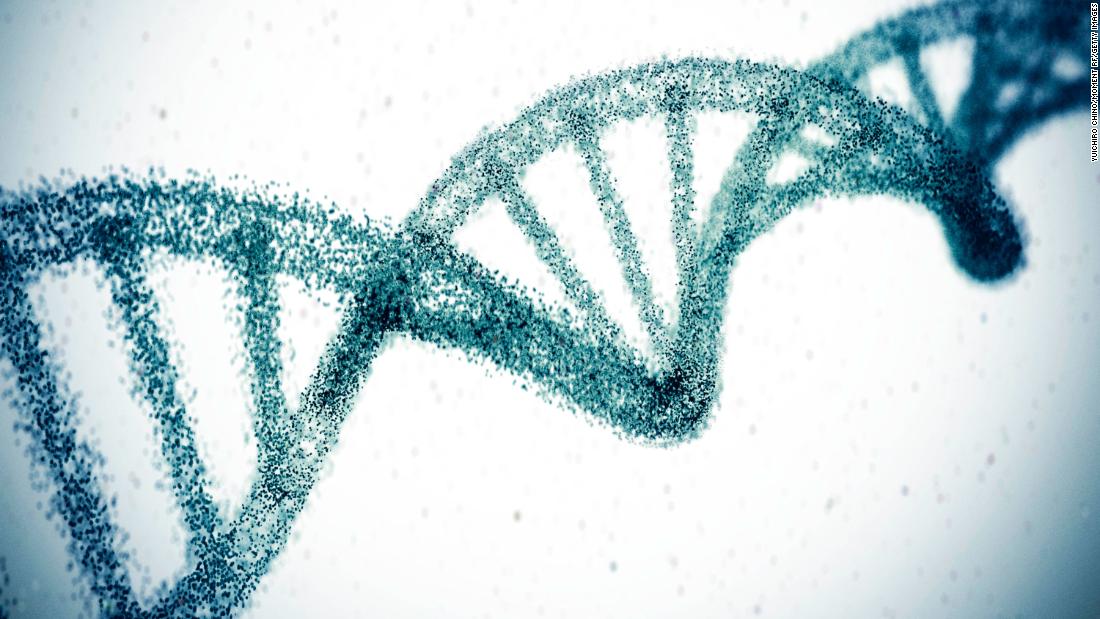Latinos in the US are at higher risk of Alzheimer's 4:50
(CNN) --
Another 42 genes linked to the development of Alzheimer's have been discovered in the largest study to date of genetic risk for the disease.
"This is a landmark study in Alzheimer's research and is the culmination of 30 years of work," study co-author Julie Williams, director of the UK Dementia Research Institute at Cardiff University, said in a statement. .
"Some lifestyle factors such as smoking, exercise and diet influence the development of Alzheimer's. And taking action now to address them is a positive way to reduce risk for ourselves," he added.
"However, between 60% and 80% of the risk of the disease is based on our genetics. And, therefore, we must continue to search for biological causes and develop much-needed treatments for the millions of people affected worldwide. world," he completed.
Genes, hitherto unknown, point to other pathways of disease progression besides the well-known APOE e4 gene or the development of signature amyloid beta and tau proteins, which accumulate in the brain with devastating results as Alzheimer's progresses .
"Developing an extensive list of risk genes for Alzheimer's disease is like having the pieces of a puzzle put together. And while this work doesn't give us the full picture, it does provide a valuable framework for future development," said Susan Kohlhaas, director Alzheimer's Research UK, who was not involved in the research.
advertising
Despite 50% discount, Alzheimer's drug costs thousands of dollars
One set of the newly discovered genes targets highly detailed reactions between proteins in the body that govern how inflammation and the immune system can damage brain cells, according to the study.
"The new risk variants identified in the present study have a significant association with the progression" of Alzheimer's disease, explains the research published Monday in the journal
Nature Genetics
.
The discovery will provide scientists with new potential targets for treatments, drugs and lifestyle changes that could reduce the risk of the deadly brain disease, experts say.
"The future of Alzheimer's disease lies in precision medicine and prevention," said Richard Isaacson, MD, director of the Alzheimer's Prevention Clinic at the Florida Atlantic Schmidt College of Medicine Center for Brain Health. University.
"This work gives us many more tools to target Alzheimer's disease more precisely over time," said Isaacson, who was not involved in the study.
The long-term effects of high cholesterol and glucose 1:08
New disease pathways
The global study analyzed the genomes of 111,326 people with a clinical diagnosis of Alzheimer's and compared them with the genes of 677,663 cognitively healthy people.
The genomes were supplied by clinics in more than 15 countries in the European Union, Argentina, Australia, Brazil, Canada, Iceland, Nigeria, New Zealand, the United Kingdom, and the United States.
The research identified 75 genes linked to an increased risk of Alzheimer's, 33 of which were already known.
It also confirmed years of research on the role of amyloid beta and tau proteins.
Of the 42 new genes linked to Alzheimer's, many cluster in various suspected but unconfirmed pathways for the development of the disease.
One such pathway is the body's immune system, designed to protect us from invading germs.
Several genes were associated with an immune regulator called LUBAC, which the body needs to turn on genes and prevent cell death.
The study also found that microglia—the brain's immune cells responsible for "taking out the garbage," that is, cleaning up damaged neurons—play a critical role in people diagnosed with Alzheimer's disease.
Some of the newly discovered genes may make microglia less efficient.
"Which could speed up the disease," Williams said.
Alzheimer's is the only disease where a person dies twice: Latino caregivers say they face more barriers
Another key pathway, according to the study, involves genes associated with inflammation.
The body uses inflammation as a defense mechanism to eliminate pathogens.
But it also plays a role in removing damaged cells.
One protein that stood out in the study was tumor necrosis factor alpha (TNF), which the immune system makes to regulate inflammation.
The study discovered a group of genes associated with this factor.
The real function of this chemical is to rally the body's defenses to fight.
But it is also the culprit in many autoimmune diseases, in which the body attacks itself, such as rheumatoid and psoriatic arthritis, Crohn's disease, and type 1 diabetes.
The study uncovered other complicated genetic interactions, illustrating that "Alzheimer's disease is a multifactorial disease, made up of different pathologies, and each person has their own path," Isaacson said.
"Clinicians always say, 'Once you've seen a person with Alzheimer's, you've only seen one person with Alzheimer's.' The disease presents differently and progresses differently in each person," he insisted.
A common cause?
Another key finding of the study is that brain disorders such as Parkinson's, frontotemporal dementia, Lewy body disease and amyotrophic lateral sclerosis may have the same underlying genetic basis.
"Taken together, these data may emphasize a potential continuum among neurodegenerative diseases," the study stated.
"The scientific and medical community views neurodegenerative disease processes as very different and distinct. And that's how we've been studying them for a long time," said Dr. Kellyann Niotis, a neurologist specializing in Alzheimer's disease prevention and Parkinson at Weill Cornell Medicine and NewYork-Presbyterian.
"This highlights that there may be more continuity between these disease processes than we really understood before," said Niotis, who was not involved in the study.
"Young people may have similar underlying genetic risks, and could lead to Parkinson's in one person and Alzheimer's in the other," he said.
"Actually, it's less relevant. What matters is understanding that this is what's wrong with your body, so let's start early and aim down this path."
Alzheimer's specialist recommends physical exercise to prevent it
In generating this more complete picture of genetic risk -- which needs to be fleshed out and defined in future studies -- the study authors also developed "a new scoring system to predict the risk of Alzheimer's disease," he said in a statement. Tara Spiers-Jones, deputy director of the Center for Discovery Brain Sciences at the University of Edinburgh.
"This tool will be useful to researchers. But it probably won't be used in the near future for people who aren't in clinical trials," said Spires-Jones, who was not part of the research.
Clinical researchers like Isaacson and Niotis know that such a tool is precisely what patients concerned about their brain health want.
"People want to know: 'What chance do I have?'
and then 'what can I do about it?' Isaacson says.
"Not today, but in the near future we will be able to calculate the probability that a person will develop Alzheimer's or another brain disorder more accurately, and that will help precision medical and lifestyle management."
AlzheimerGenesGenetics






